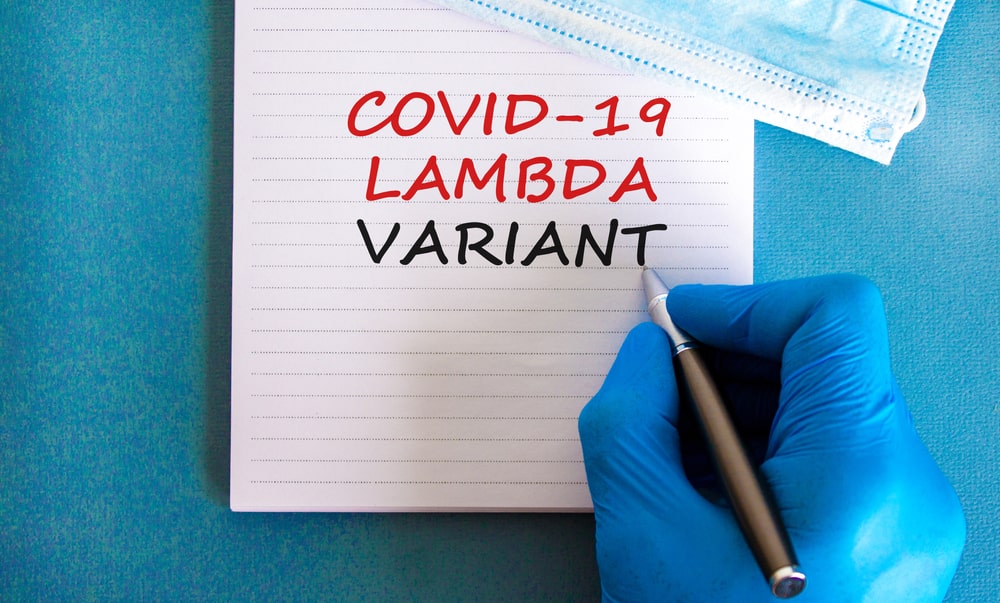Lambda Variant are now in Japan; Here’s What You Need to Know About Lambda Variant

With the coronavirus still raging in Japan, one of the newest variants — lambda, which slipped into the country just ahead of the Tokyo Games — has sparked concern that this new version may raise the risk of transmission and put further strain on the nation’s health system.
Those worries over the variant have only grown in the wake of the health ministry’s announcement on Aug. 24 that two cases of lambda infection were found at Haneda Airport.
The unknowns surrounding the variant’s traits and scarce information about it in Japan have sparked calls for stricter measures aimed at suppressing the spread of lambda amid fears the version may prove to be highly infectious.
Here is a look at what we have learned so far about the lambda variant.
What are the traits of the lambda variant?
The mutation was first identified in Peru in August 2020. In June, the World Health Organization put the mutation on its variants of interest list, as many questions surrounding its characteristics, transmissibility, and potential resistance to vaccines remain unanswered.
In its report issued June 15, the WHO said that lambda has been associated with substantive rates of community transmission in multiple countries, with prevalence rising over time concurrently with increased COVID-19 cases. It added that more research will be conducted on the variant.
The organization said that lambda “carries several mutations with suspected phenotypic implications, such as a potential increased transmissibility or possible increased resistance to neutralizing antibodies.”
It also shows similarities to the delta variant, suggesting that lambda’s transmissibility could even be identical to that of the delta. However, given how widely the delta variant has spread across the country, lambda would need to outcompete delta to pose a greater risk.
According to scientists, lambda has two mutations — T76I and L452Q — that make the variant highly infectious.
Where is the lambda variant spreading?
The WHO noted in its June report that the lambda variant had been detected in 29 countries, territories, or areas in five WHO regions, although since December the mutation has spread mainly across South America.
Lambda has become the dominant variant in countries such as Argentina, Chile, Ecuador, and Peru. Authorities in Peru have reported that 81% of COVID-19 cases sequenced since April 2021 were associated with the lambda variant. It has also been reported in some American states and in Europe.
So far, Japan has confirmed three lambda infections.
Is the spread of the lambda variant a serious problem in Japan?
Japan confirmed its first case of the lambda variant at Haneda Airport in Tokyo on July 20 in a woman in her 30s who was affiliated with the Tokyo Olympics. The woman had traveled to Peru before arriving in Japan but she did not have any COVID-19 symptoms when she entered Japan.
Although she was immediately isolated after the infection was confirmed, the government was strongly criticized for withholding the information from the public — the authorities eventually confirmed the infection under pressure from the media — as the revelation coincided with preparations for the postponed Olympics. The health ministry also belatedly admitted that people who were in contact with the first patient infected with lambda were not tracked down.
Two other cases were discovered on Aug. 12 in two men: one in his 30s and the other in his 50s. Both had traveled to Peru before arriving in Japan at Haneda Airport, and they both were also asymptomatic upon arrival and immediately isolated.
What measures has Japan introduced to curb the spread of the lambda variant?
Given the low number of infections — unlike those from variants such as delta that have spread widely nationwide — lambda is not yet considered a matter of concern and has not yet been classified as such.
Chief Cabinet Secretary Katsunobu Kato said on Aug. 18 that “lambda infections have not been designated for surveillance,” which he said was the reason for the delay in publicly confirming the infections. Experts are warning that the fact that lambda has not been designated as a variant of concern or interest, as it has been by the WHO, might make the public less aware of its potential risks.
In Japan, the delta variant is dominant and accounts for about 90% of infections confirmed nationwide. According to the health ministry, Japan had logged 11,864 cases of delta infections as of Aug. 23, while other variants such as beta and gamma had dropped below 100. But given the rising possibility of further spread, the government has said it will begin to disclose data from lambda genome analysis.
However, only two new lambda infections were confirmed in August — both from people who had recently traveled to Peru. Consequently, National Institute of Infectious Diseases Director Takaji Wakita has said the risk of lambda transmission is low at present, provided the delta variant remains dominant.
The government plans to analyze lambda’s genome sequencing data more closely and disclose it, as concerns surrounding its potency continue to rise.
How do vaccines fare against the lambda variant?
At present, the WHO and other public health experts are trying to understand how the variant compares with other versions of the virus, including whether it is more transmissible or more resistant to vaccines.
According to the WHO, the lambda variant has some mutations that might make it resistant to antibodies created from vaccines against COVID-19.
In a paper posted in July, Japanese researchers found that three mutations in lambda’s spike protein make it resistant to vaccine-induced antibodies. In their findings, the researchers warned that the WHO’s classification of lambda as a variant of interest may not be enough to draw people’s attention to the actual risk it may pose.
























